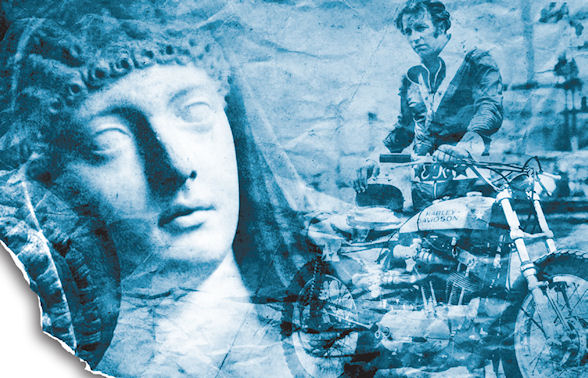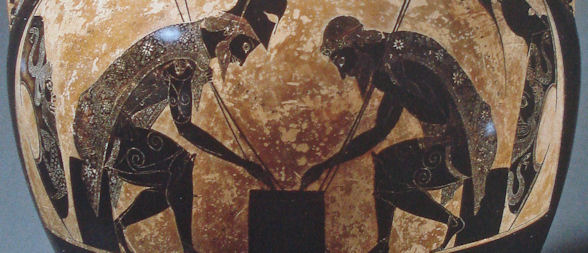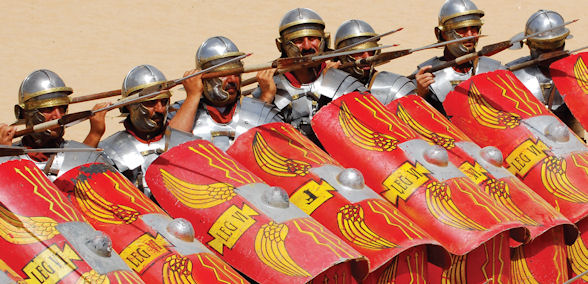This article first appeared in the Mar/Apr 2015 issue of WGM.
Putting your money where your mouth is constitutes powerful wisdom in gambling circles. If you are ready to back up your opinions with cold, hard cash – and in extreme cases, your life – you will earn all the more respect for it. But how many people are really prepared to risk it all?
One much talked about daredevil in his time was the Irishman Thomas “Buck” Whaley. In 1786, during a dinner at the residence of the Duke of Leinster, the 20-year-old entered into a wager for £15,000 – equivalent to almost US$3 million today – that within two years from the time of his departure he could make his way from Dublin to Jerusalem and back again, with proof of having actually visited the city.

It was a feat considered almost impossible by his opponents in the wager, some of which were not convinced this fabled city even existed. And if it did, Jerusalem at the time was part of the Ottoman Empire, considered to be extremely dangerous territory for foreigners and infidels. Also, keep in mind this was at a time when sailing ships and riding horses were the fastest modes of transport known to man!
Whaley, however, was undaunted. Two years later, in October 1788, after careful preparation including the hiring of a few armed servants, he sailed from Dublin. By this time the wager had become so famous that a large crowd of spectators had gathered in the harbor to bid him farewell.
Via Gibraltar, Whaley made his way to Smyrna and rode overland to Constantinople. There, through the British ambassador, he was introduced to the vizier Hasan Pasha who after some deliberation approved of the daring wager and had papers drawn up to ease safe passage to Jerusalem.
Things, however, were not that easy. From Constantinople, Whaley and his small entourage sailed to the coastal city of Acre, where they stepped ashore and were granted an audience with Ahmed al-Jazzar who was the de facto ruler of Galilee and the surrounding provinces. Ahmed went under the nickname “The Butcher”, due to his rather less-than-democratic way of ruling over his fiefdom. In his memoirs, Whaley admitted to feeling rather nervous before the audience, which was immediately off to a bad start when Ahmed called the vizier’s papers worthless. Talking for the lives of himself and his servants, Whaley’s Irish charm eventually prevailed and Ahmed al-Jazzar had new travel documents drawn up permitting the continued journey. And so, on 28 January 1789, Whaley finally rode into Jerusalem.

There he found accommodation within the Franciscan monastery Terra Sancta and stayed for a month. During that time, Whaley made careful sketches of a number of buildings and other landmarks in the city and also had the Abbot sign a document confirming Whaley had actually been there.
The homeward journey was mostly undertaken overland on horseback and in the late summer of that same year he made a triumphant return to Dublin. Whaley’s opponents duly paid up their £15,000, netting Whaley a nice profit after covering his travel expenses of nearly £8,000.
Not long thereafter, Whaley entered into another high-stakes gamble – possibly even more dangerous – that he could ride his Arab steed at full speed inside his father’s house at Stephen’s Green. The rise was to run along a gallery, into the dining room and out through a large open window down to the street 30 feet below without the horse hesitating even once – and with both horse and rider surviving the lethal jump! Whaley made it and collected another £12,000 for his feat!

One who was not so lucky, however, was the British merchant navy captain Matthew Webb. In August 1875 he became the first person to successfully swim across the English Channel, from Dover to Calais, which overnight turned him into a global celebrity. The wager that ended his life occurred eight years later on 24 July 1883. Webb had bet US$10,000 that he could swim across the treacherous Whirlpool Rapids just below Niagara Falls. It was literally his life on the line – and he lost his wager halfway across when the whirlpool sucked him in and drowned him. Perhaps it is fitting that the epitaph on his memorial in Dawley in England reads, “Nothing great is easy”… a lesson for gamblers everywhere.







